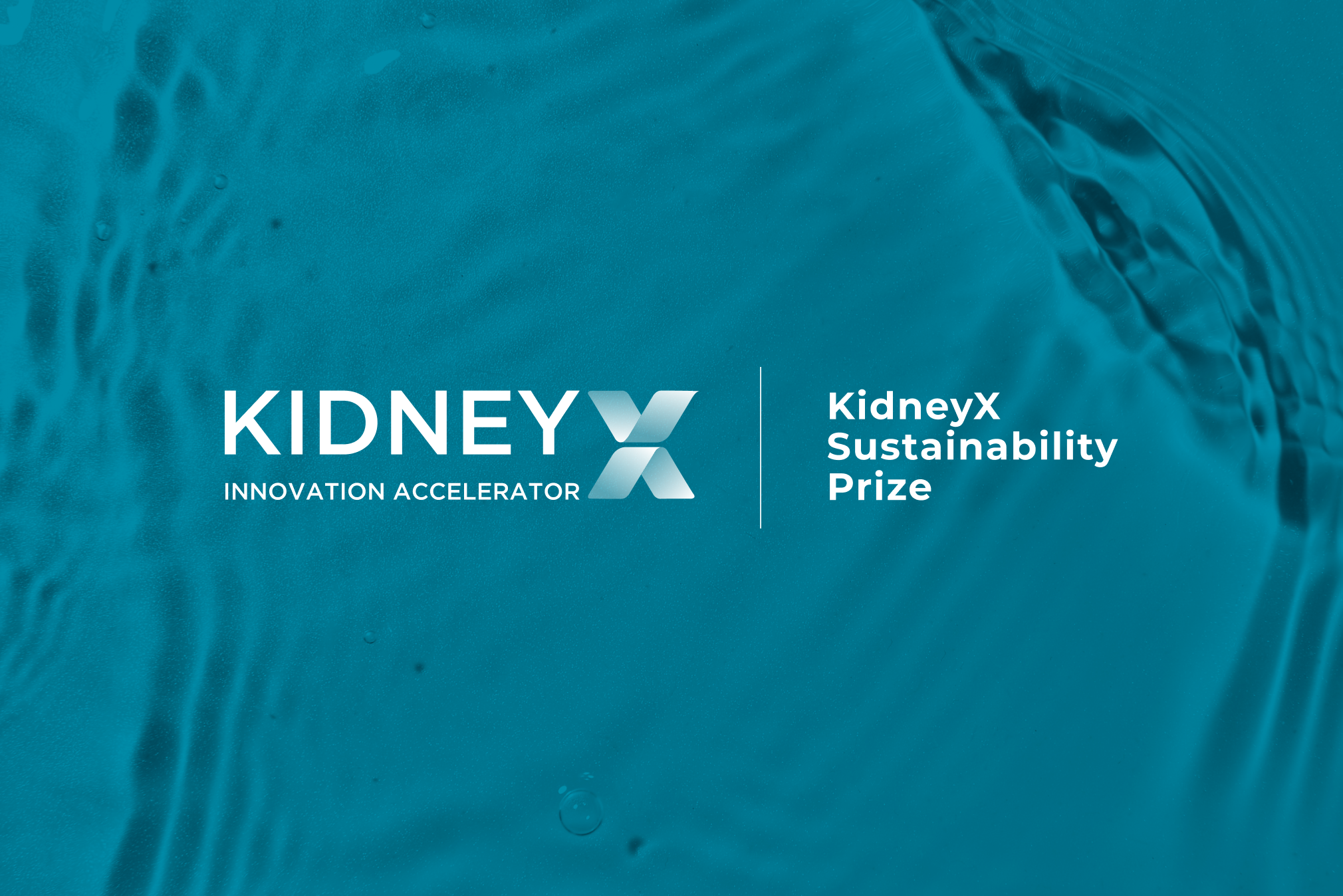HHS announces winners of the $7.25 million KidneyX Sustainability Prize.
More than 850 million people worldwide — including 37 million Americans — are living with kidney diseases. For patients experiencing kidney failure, dialysis is an essential treatment that can help live longer. But current dialysis technology, both in care facilities and at home, consumes large amounts of water and power. The high resource requirements of dialysis treatment put patients at risk, especially in times of acute disaster when water and power shortages can jeopardize treatment. While long-term therapies like artificial kidneys and regenerative cell therapies hold promise for the future, hundreds of thousands of Americans living with kidney failure today urgently need solutions that address the kidney care system’s vulnerability in the short term.
This month, the KidneyX Sustainability Prize, a $7.25 million challenge to drive meaningful change in the sustainability of kidney care, announced seven winning solutions that promise to make kidney care more resilient. Each winner will receive an equal share of the $7.25 million prize purse. Congratulations to the winning teams:
- Kuleana Technology Inc. Advancing Hemodialysis Sustainability: Dialysate Regeneration via Uremic Toxin Photo-Oxidation. “Kuleana Technology’s Dialysate Regeneration Module enables hemodialysis with just 2 liters of water per treatment, making dialysis portable and accessible while saving 300 billion liters of water per year worldwide.”
- Micro Nano Technologies Inc. Handheld Water-Free and Battery-Powered Renal Replacement System. “The proposed technology mimics kidney filtration, eliminating the need for water and operating on a laptop-sized battery for 8 hours, ensuring dialysis access during disasters without traditional infrastructure.”
- Particle4X. SMART-PD. Sustainable Home Dialysis Revolution. “SMART-PD is an advanced home dialysis system that produces sterile PD fluid from tap water, reclaims effluent, and employs AI-powered monitoring to enhance sustainability and patient safety.”
- Qidni Labs Inc. Qidni/D: A Novel Sorbent Platform for Dialysis. “The Qidni/D is a portable and nearly waterless hemodialysis system that can offer accessible and sustainable access to care anywhere.”
- Stephen Ash. Sorbent Regeneration of Dialysate with Improved Ammonium Capacity. “We have developed a sorbent with high capacity for NH4+ (from urea) and minimal binding of Ca++ and Mg++, which should make regeneration of dialysate simpler, smaller and more practical.”
- University of Minnesota. Decentralized Dialysis Fluid Production: Enhancing the Sustainability of Dialysis Care. “Our innovation enables decentralized production of peritoneal dialysis fluids, reducing dialysis energy and water consumption by 48% and 66%, respectively, increasing supply chain resilience, and improving patient outcomes worldwide.”
- Wearable Artificial Organs Inc. Green dialysis on batteries using only 300ml of water. “A 2 lb. miniaturized Wearable Artificial Kidney (WAK) powered by rechargeable batteries, continuously regenerates dialysate water and delivers continuous dialysis 24 hours a day, 7 days a week.”
A multidisciplinary group of judges reviewed and evaluated eligible submissions based on the six equally weighted judging criteria.
This prize is the latest initiative from the KidneyX Innovation Accelerator (KidneyX), a public-private partnership between HHS and the American Society of Nephrology (ASN) to accelerate innovation in the prevention, diagnosis, and treatment of kidney diseases. The KidneyX Sustainability Prize was designed and produced by Luminary Labs.

